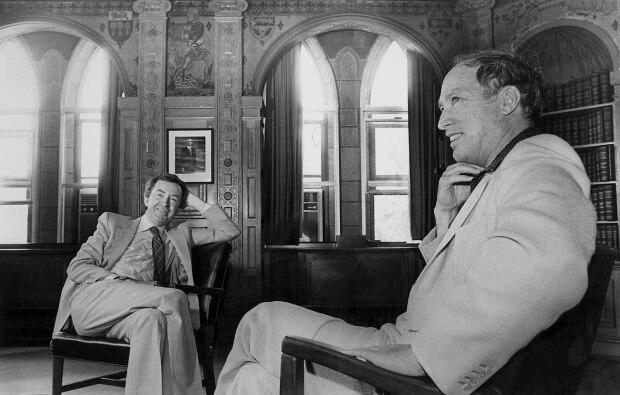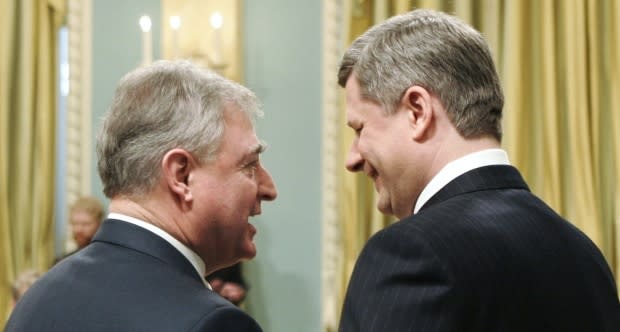How often does the party with the most seats lose the popular vote?
With results now in for all 338 ridings after Monday's election, the Liberals are again set to form the government, albeit a minority.
That means the road ahead will be bumpy, with the party having to bridge gaps, mend wounds and work together with other parties to cling to power.
It's been a while since we've been in this situation federally and it's generated many questions. We've been answering your questions throughout the campaign, so we thought we'd give it one last go now the ballots have been counted.
How often does the party with the most seats not win the popular vote?
Conservative Leader Andrew Scheer may not have won the election but he is boasting about his party's performance in the popular vote — having drawn more votes than the Liberals; some 34.4 per cent to their 33.1 per cent. (Official numbers are still being tabulated by Elections Canada.)
It's happened before, but that was 40 years ago, during the 1979 election when Progressive Conservative Joe Clark topped Liberal Pierre Trudeau in seats to form a minority government, but Trudeau's party won the popular vote.
Similar situations happened in 1957 (when the PCs won the most seats but Liberals took popular vote) and in 1926 (vice versa).

Why can you only vote in your home riding on election day?
As election day progressed, we heard from several ticked-off voters who couldn't be in their home riding and tried to vote elsewhere but got turned away, and were ultimately unable to vote.
Elections Canada allows electors to vote from outside their home riding ahead of election day — via initiatives like on-campus voting or at an Elections Canada office. But on election day, you are required to vote at your polling station in your home riding.
Elections Canada spokesperson Matthew McKenna says being able to vote anywhere on election day would significantly slow down the results.
"There would need to be a major undertaking to ensure that all ballots for a single polling division were collected from all over the country, and counted," he said in an email. "And that would have to happen for each polling division."
How long do minority governments last?
Typically, less than two years. Joe Clark's Conservative minority government in 1979 lasted only six months; John Diefenbaker's in 1957 a mere 177 days. By contrast, each of Stephen Harper's minority governments lasted more than two years.
We've been getting questions about how long we can expect this Liberal minority government to last.

It all depends on how well it can work with other parties — and how long those parties care to provide support. The Liberals were 13 seats shy of a majority. That means on bill they try to pass will need assistance from at least 13 non-Liberals. (That number may nudge up to 14 if the Speaker, who doesn't vote unless it's a tie, is a Liberal.)
Minority governments fall when the party loses a vote on a motion or matter of confidence in the House, such as passing a budget.
Can anything get done in a minority government?
Sometimes. Perhaps the most notable example is Liberal Lester B. Pearson's minority between 1963 and 1968, which worked with the NDP to establish the Canada Pension Plan, the current Canadian flag and yes, medicare.
More recent examples include Paul Martin's government, which legalized gay marriage, and Stephen Harper's minorities, during which he extended Canada's mission in Afghanistan.
Can the Liberals make members from other parties cabinet ministers?
Nothing stops the party from doing that, as cabinet ministers can be from any party or don't have to be elected at all. (Stephen Harper appointed Michael Fortier to both his cabinet and the Senate, despite not being an MP.).
However, the optics wouldn't be good. A notable example is when Liberal David Emerson crossed the floor to the Conservatives in 2006 to join Harper's Conservatives as a cabinet minister.

What happens to the leaders now? Will they be replaced?
It appears no one is going anywhere for the time being, but several parties have specific rules about leadership reviews.
Under the Conservative constitution, Monday's loss allows for a secret vote on the future of Scheer's leadership at the next party convention in 2020. If more than 50 per cent vote to "engage the leadership selection process," a race for a new leader will take place. Like the Conservatives, Liberals hold similar votes when they don't form government.
The NDP has a secret vote at every convention. Again, a vote of more than 50 per cent will trigger a race to replace Jagmeet Singh, something he's "not at all" worried about. It's precisely how the party dropped Tom Mulcair following the 2015 election.
The Greens will have their own leadership review before mid-April 2020, when Elizabeth May will have to score at least 60 per cent approval to stay on.
All this can change if a party leader resigns.



